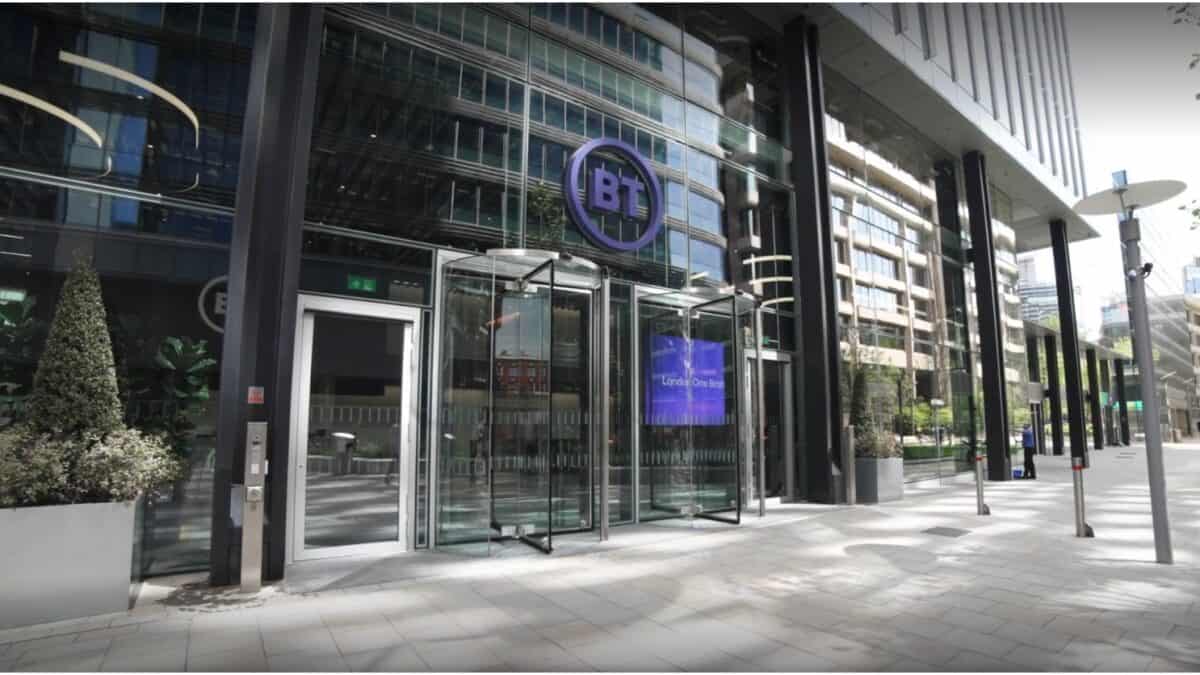The BT (LSE:BT.A) share price is near the bottom of its five-year trading range. Over the last half-decade, the stock’s swung between 100p a share and 200p a share. So are we looking at a buying opportunity?
What City analysts say
When I’m looking to understand how much a stock should be worth, City analysts’ own targets can be a good place to start.
The consensus of the 18 analysts covering BT shares suggests the stock’s vastly undervalued. There are currently 10 ‘buy’ ratings, four ‘outperform’, two ‘hold’, one ‘underperform’, and one ‘sell’ rating.
Moreover, the average share price target for BT’s 182.4p. That’s 76.1% above the current share price.
However, it’s worth recognising that analysts’ share price targets can be wrong, and because things move fast, it’s worthwhile discarding targets issued more than three months ago.
It’s also worth highlighting that while the consensus is overwhelmingly positive, analysts’ targets vary hugely. There’s a 180% difference between the highest and lowest share price target for this FTSE 100 stock.
Is BT stock really undervalued?
BT’s forecast to earn 15.53p per share in 2024. In turn, this means the company’s trading around 6.7 times forward earnings. Looking further forward, earnings are expected to reach 15.85p in 2025 and 15.74p in 2026. That’s not overly strong growth.
So on a price-to-earnings (P/E) basis, BT definitely isn’t expensive. However, the P/E ratio doesn’t take account for debt. BT’s net debt stood just short of £11bn in 2018, but the latest figure was £19.7bn. It’s currently trading around 3.8 times EV-to-EBITDA. These metrics aren’t unattractive, but debt is.
An uninspired market
I can see why the market isn’t overly excited by BT shares. Debt’s high, earnings growth’s slow throughout the medium term, and capex is likely to remain elevated due to the ongoing national rollout of fibre-to-the-premises (FTTP).
Moreover, this former state-owned company still needs to make top-up payments to plug gaps in its pension scheme. Many companies like BT offered generous final salary pension plans in the past, but the issue’s particularly acute for this former national telecoms operator.
The positives
I’ve grown increasingly attracted to BT shares over the past six months. Yes, there are issues, but there are positives too. The company’s seen growth in key areas like Average Revenue Per User (ARPU) for both broadband and mobile. Its Openreach and Consumer divisions are performing rather well.
What’s more, the uptake of FTTP over the next decade and the end of infrastructure works will likely bring two positives. Firstly, FTTP offers higher ARPU than traditional copper wiring, but it also offers cost savings.
Fibre cables typically require less maintenance, and this means fewer maintenance staff. BT’s targeting a headcount reduction of 25-40% over the next five years. Ultimately, this would be great for the business.
In short, BT historically hasn’t traded much lower than it is today. That’s important to note. It also appears to be undervalued. So I’d suggest the way is up from here, unless earnings disappoint.







